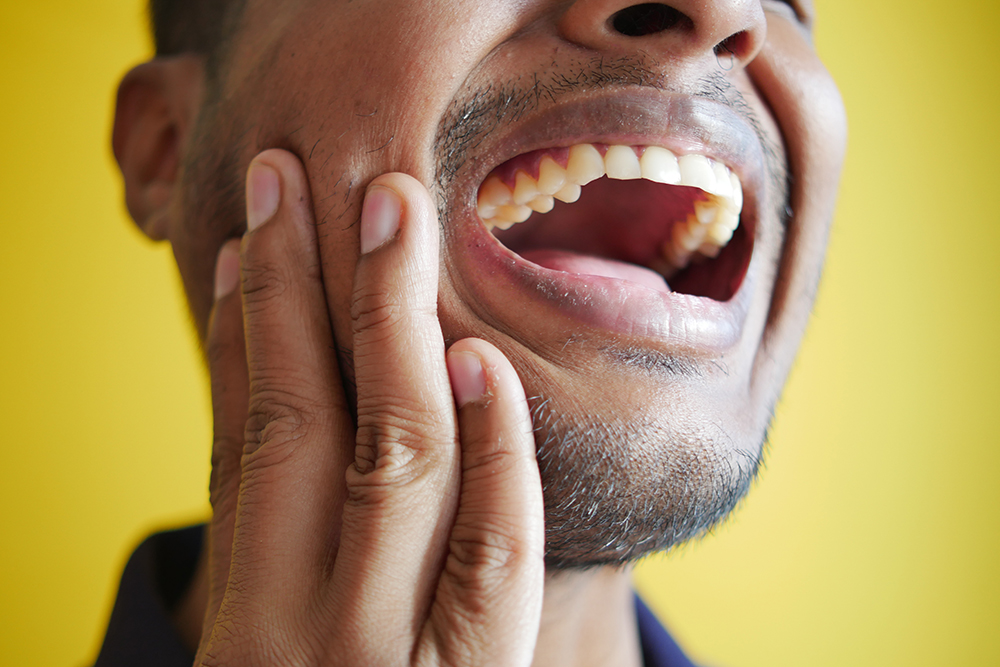Contents
Yes, temporomandibular joint dysfunction (TMJD) can cause dizziness and vertigo. One study found that almost 60% of participants with TMJD also had tinnitus (ringing in the ears), vertigo or hearing loss.
Why does TMJ dysfunction often cause dizziness and vertigo?
Medical professionals aren’t entirely sure why TMJD triggers dizziness and vertigo. One theory is that inflammation caused by TMJD can disrupt nearby nerves that help the body balance itself. This disruption causes the brain to receive false signals that can lead to dizziness and vertigo.
Another theory is that TMJD causes poor positioning of the mandibular condyle joint, which is more commonly known as the jaw joint. Poor positioning of this joint can affect muscles in the head that also help control parts of the inner ear. Issues with these inner ear muscles can then lead to dizziness and vertigo.
What is TMJ dysfunction?
TMJ dysfunction is a disorder where the jaw experiences pain and a lack of mobility. The temporomandibular joint, or TMJ, is a joint on each side of your face below each ear. You probably know it as the jaw joint. When the TMJ becomes disrupted, the inner ear, jaw, head and face can all be affected.
Not just including dizziness and vertigo, TMJD can cause symptoms like teeth grinding, tension headaches, ringing of the ears, bloodshot eyes and migraines. Because of how connected the jaw is to the rest of the head, a TMJ disorder can spread pain throughout the rest of the head and create chronic and/or disrupting conditions like chronic dizziness and vertigo.
TMJD is often caused by a jaw injury like a hard blow to the jaw or a fall. It also can be caused by immense stress or anxiety because of how much tension they can cause in the jaw muscles. If you also grind your teeth when sleeping or clench your jaw often, you may be at a higher risk of developing TMJD.
TMJD is a common disorder, with 5% to 12% of the adult population dealing with some form of this disorder. With this disorder having a range of severity, you may have a slight feeling of dizziness as TMJD can cause mild symptoms that are not life changing. However, you may also have a strong feeling of dizziness or have a case of vertigo from a more severe case of TMJD.
Other related symptoms that TMJ dysfunction may be causing
As said before, TMJ can cause pain in many different parts of the body and create disruptive problems in the body. Symptoms can occur anywhere in the head because of how the jaw is connected to the rest of the face and how the pain can radiate. Here is a list of other TMJD-related symptoms you may be experiencing:
- Jaw pain or tenderness.
- Aching facial pain.
- Shoulder or neck pain and soreness.
- Stiffness in the jaw.
- Difficulty closing or opening your mouth.
- Jaw popping or clicking randomly or when you open your mouth.
- Earache.
- Toothache.
- Malocclusion, or your teeth not fitting together normally.
- Pain behind the eyes.
- Sensitivity to light.
What physical therapy techniques can help treat TMJ dysfunction symptoms?
There are a variety of physical therapy modalities that can help treat dizziness, vertigo and other common TMJD symptoms. A couple of the techniques your physical therapist may use include:
- Joint manipulation — For TMJD, joint manipulation may involve your therapist using their hands to gently move your jaw joint through its normal range of motion. Doing so can help ease pain, stretch jaw muscles and help return your jaw joint to its normal position.
- Soft tissue manipulation — Soft tissue manipulation involves your therapist using their hands to apply various levels of pressure to an area of the body. This pressure is applied using massage-like movements over the area. For TMJD, this technique can help reduce tension in jaw muscles, which can, in turn, ease pain, dizziness and vertigo.
How Lattimore PT can help with your TMJ dysfunction
TMJ dysfunction can make everyday life difficult and makes mouth and jaw movement hard or strange. However, Lattimore PT can treat your TMJD and symptoms it causes, including dizziness and vertigo.
Talking to one of our physical therapists about your TMJD symptoms is the first step you can take, and it can be easy and informative. We have specific treatments available for TMJD, and one of our physical therapists can use these treatments to build you a custom treatment plan.
Contact our team today for more information about how we can address your TMJ dysfunction or to schedule an initial appointment.



